May 2009 Spring Formal Memorial Day Weekend (Page One)
(May 22, 2009) Last Updated: 09/11/2019 10:38:AM
Did you know? - Memorial Day, originally called Decoration Day, is a day of remembrance for those who have died in our nation's service. There are many stories as to its actual beginnings, with over two dozen cities and towns laying claim to being the birthplace of Memorial Day. There is also evidence that organized women's groups in the South were decorating graves before the end of the Civil War: a hymn published in 1867, "Kneel Where Our Loves are Sleeping" by Nella L. Sweet carried the dedication "To The Ladies of the South who are Decorating the Graves of the Confederate Dead" (Source: Duke University's Historic American Sheet Music, 1850-1920).
While Waterloo N.Y. was officially declared the birthplace of Memorial Day by President Lyndon Johnson in May 1966, it's difficult to prove conclusively the origins of the day. It is more likely that it had many separate beginnings; each of those towns and every planned or spontaneous gathering of people to honor the war dead in the 1860's tapped into the general human need to honor our dead, each contributed honorably to the growing movement that culminated in Gen Logan giving his official proclamation in 1868.
It is not important who was the very first, what is important is that Memorial Day was established. Memorial Day is not about division. It is about reconciliation; it is about coming together to honor those who gave their all.

Sue delights in seeing the great table decorations


The club was decorated for Memorial Day
Did you know? - Memorial Day was officially proclaimed on 5 May 1868 by General John Logan, national commander of the Grand Army of the Republic, in his General Order No. 11, and was first observed on 30 May 1868, when flowers were placed on the graves of Union and Confederate soldiers at Arlington National Cemetery. The first state to officially recognize the holiday was New York in 1873. By 1890 it was recognized by all of the northern states.
The South refused to acknowledge the day, honoring their dead on separate days until after World War I (when the holiday changed from honoring just those who died fighting in the Civil War to honoring Americans who died fighting in any war). It is now celebrated in almost every State on the last Monday in May (passed by Congress with the National Holiday Act of 1971 (P.L. 90 - 363) to ensure a three day weekend for Federal holidays), though several southern states have an additional separate day for honoring the Confederate war dead: January 19 in Texas, April 26 in Alabama, Florida, Georgia, and Mississippi; May 10 in South Carolina; and June 3 (Jefferson Davis' birthday) in Louisiana and Tennessee.

The room will soon fill up
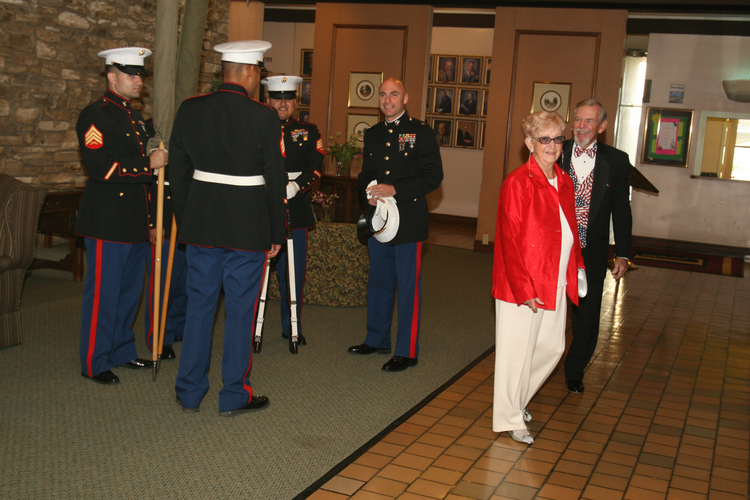
The new arrivals are greeted by Marines from Los Alamitos



Jim escorts the 7-Up
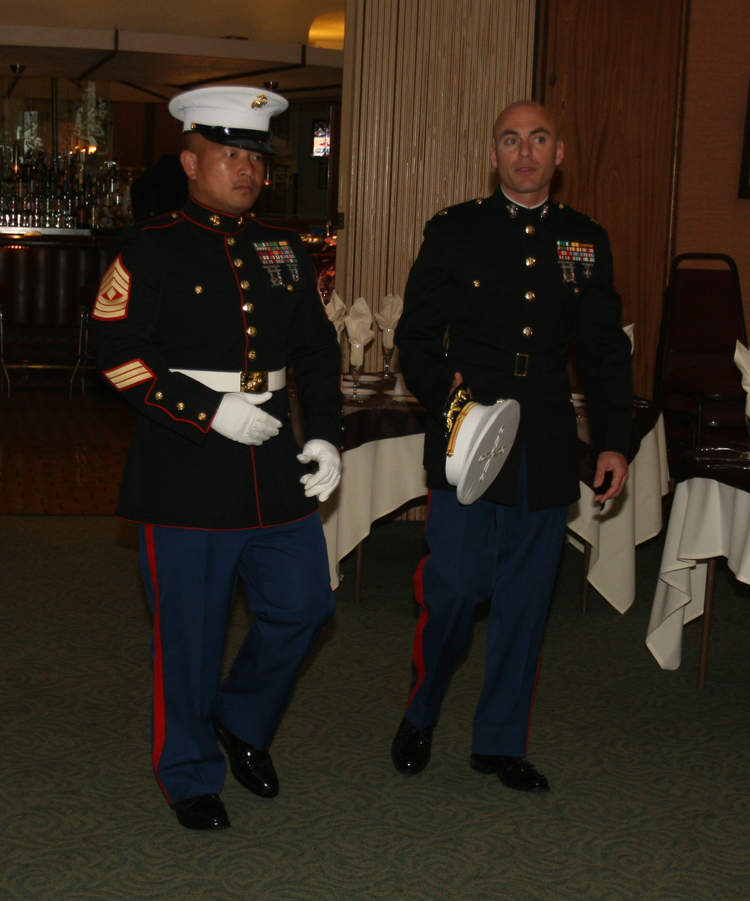
The major is proud of his unit

Bill and Angie arrive

Sue and Nick
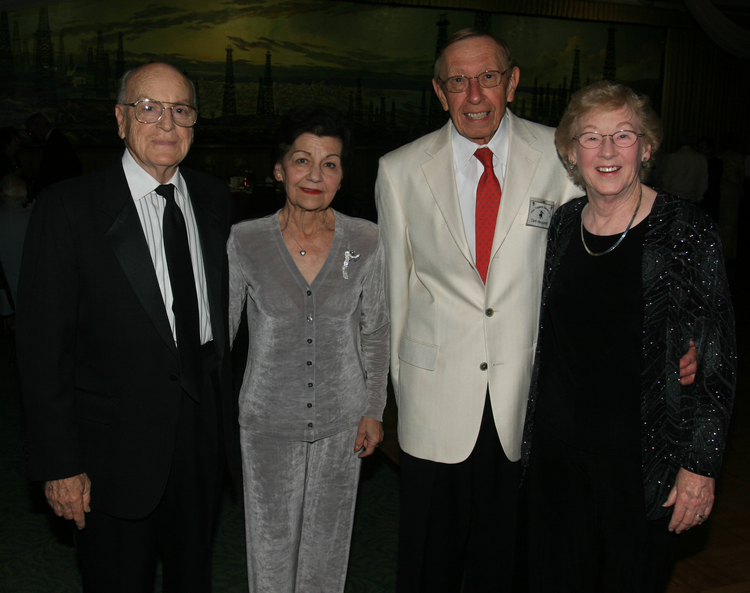


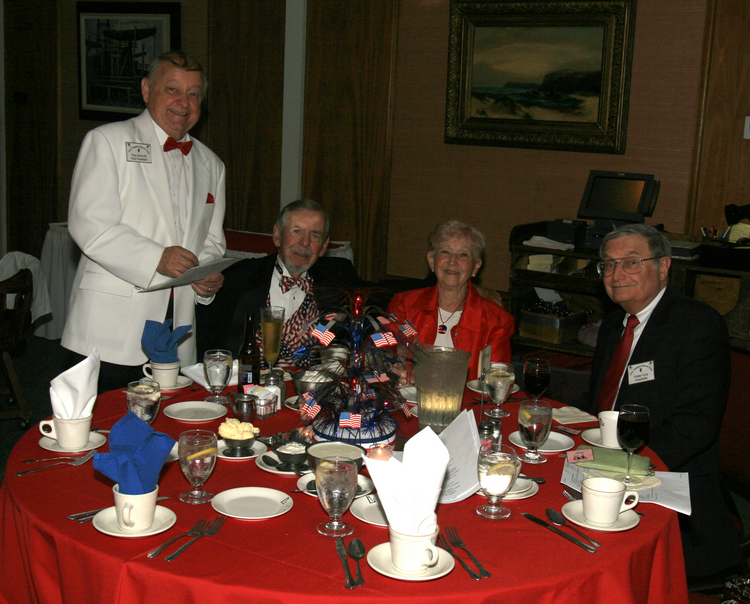


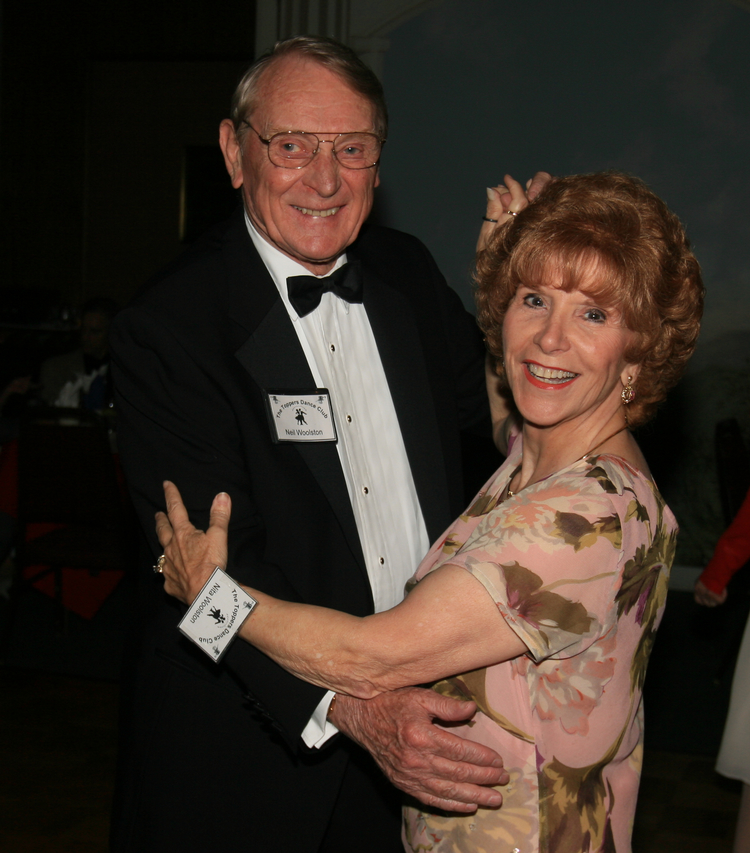
Neal and Nita
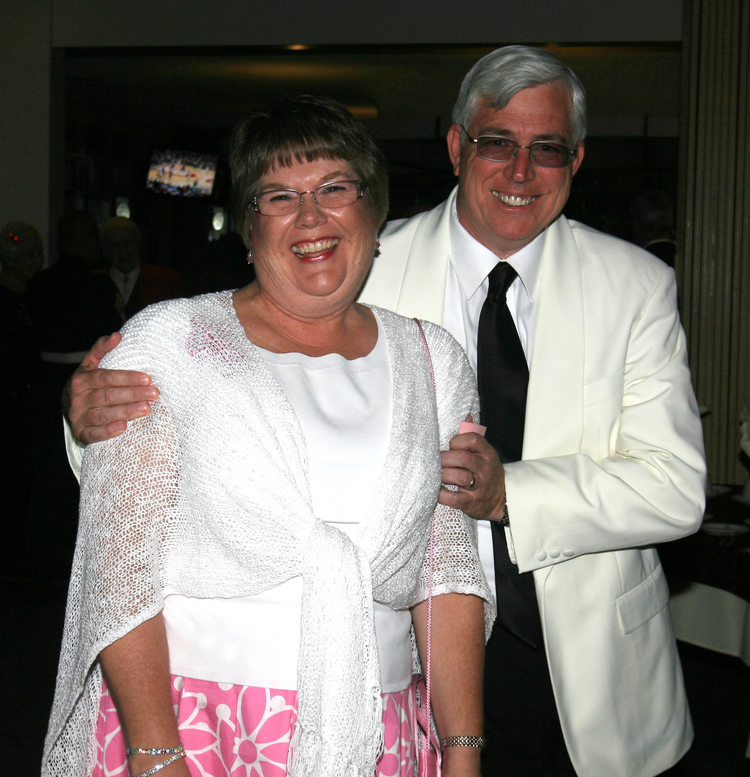
Lori and Dean
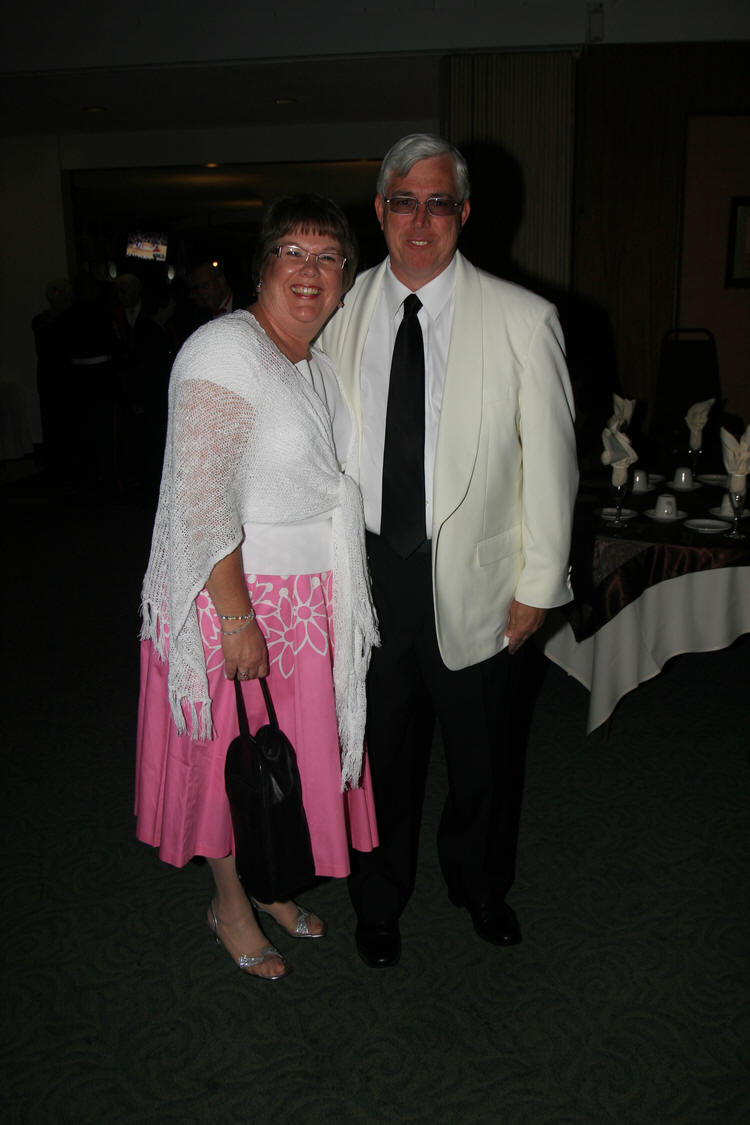
The Colors Are Presented

They are ready to go

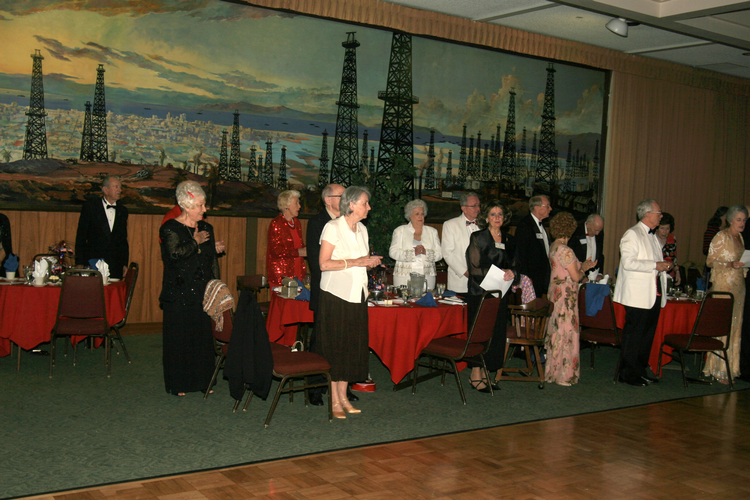

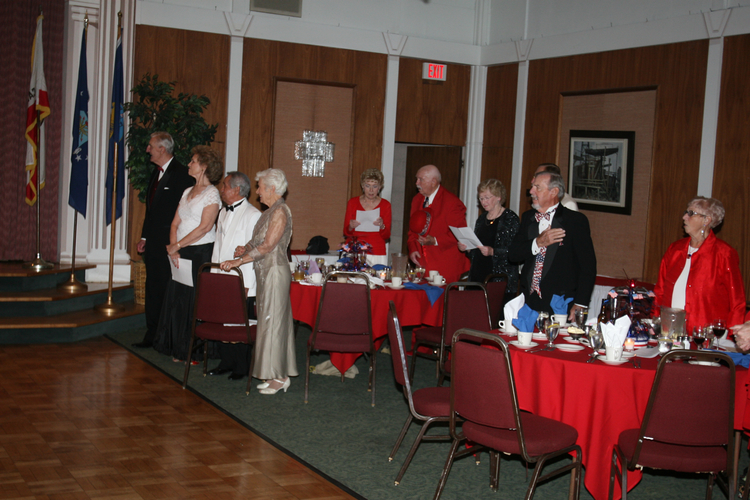
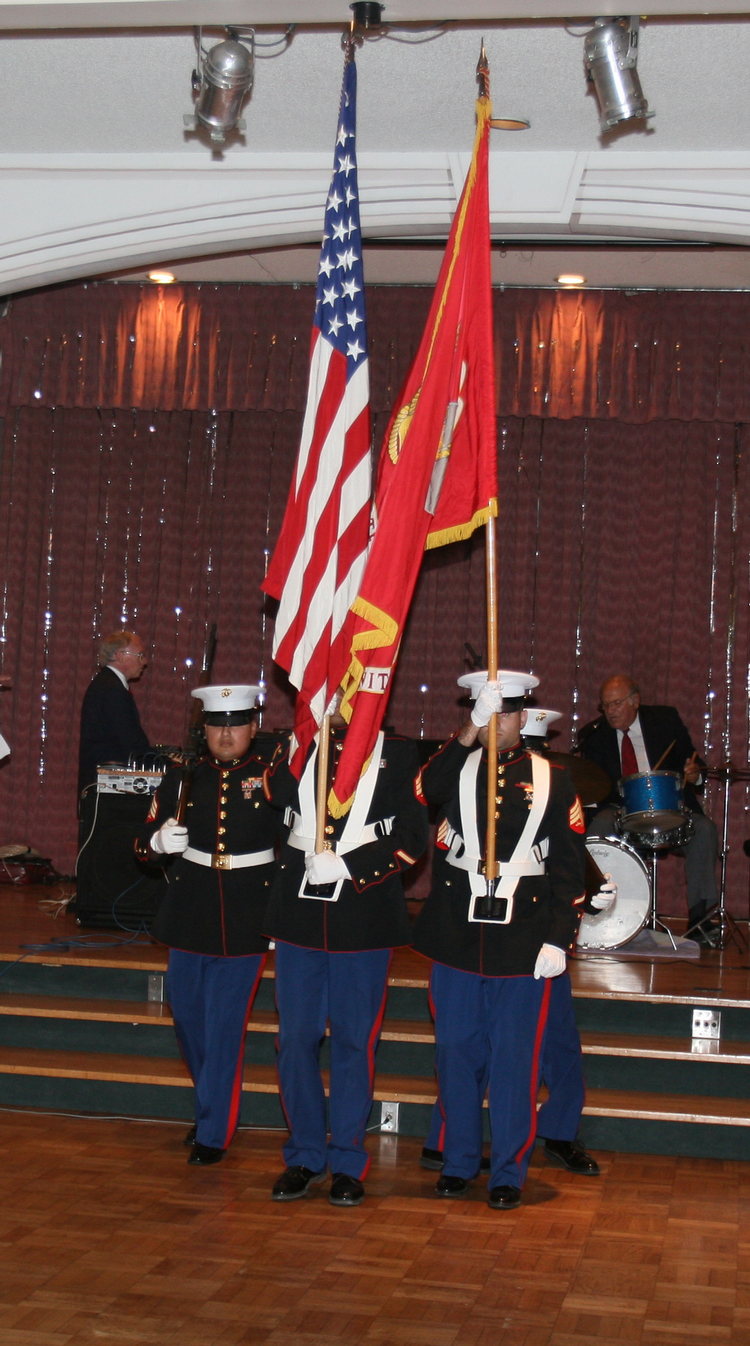
Sharp

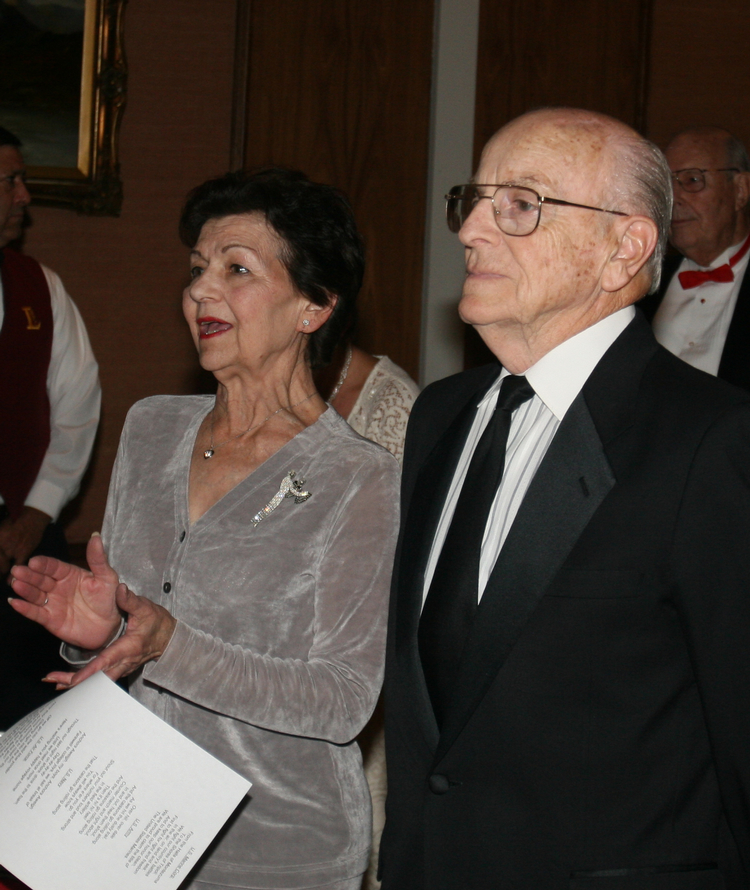
Jan and Jim



Did you know? - An honor guard, or ceremonial guard, is a ceremonial escort, often military in nature, usually composed of volunteers who are carefully screened for their physical ability and dexterity. Only those persons who are highly motivated and maintain exceptionally high standards of appearance and conduct and show aptitude for ceremonial duty are considered. The primary purpose of an honor guard is to provide funeral honors for fallen comrades.
An honor guard may also serve as the "guardians of the colors". They present a nation's colors for various ceremonies and official state functions, both on and off base. Additionally, honor guards serve as ambassadors to the public, presenting a positive image of their service, and assisting with the recruiting effort